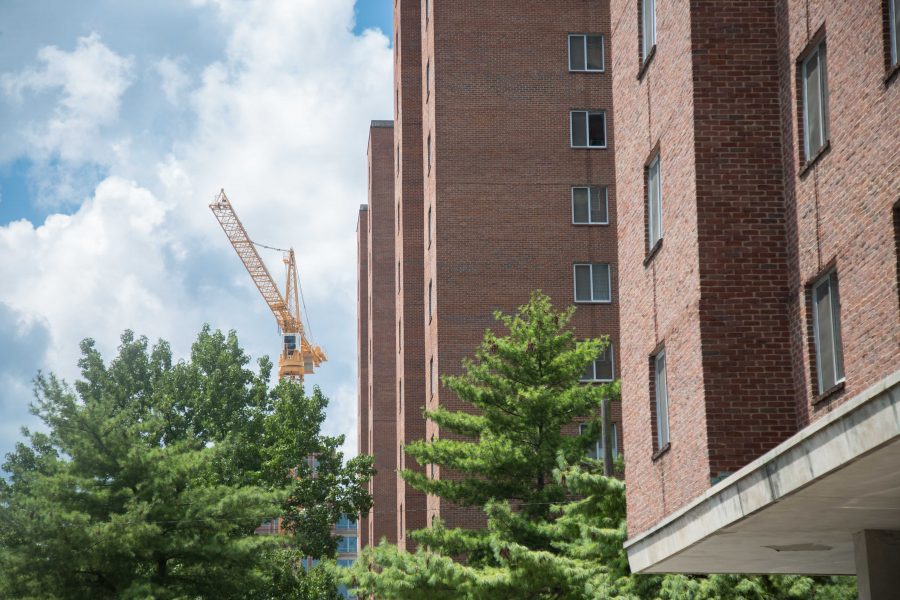On Nov. 7, the Office of Housing and Residential Education (OHARE) held an Off-Campus Housing Fair in Lupton Formal Lounge, following the University’s announcement that there would be a significant increase in the number of students allowed to live off-campus next year. At the fair, students were able to meet utilities providers and the property managers of various off-campus options.
In the 2018-2019 school year, 350 fourth-year students were granted permission to live off-campus. With West End construction necessitating the teardown of Carmichael Towers West in May, OHARE increased this number to 600 spots and opened the off-campus application process to third-year students.
While students approved for off-campus housing are responsible for securing their own housing and utilities, the Off-Campus Housing Fair allowed interested students to meet with property managers and learn about pricing specials for Vanderbilt students. The distance of these properties from Vanderbilt’s campus varied, from directly bordering campus to twenty minutes away. The full list of properties can be found here.
“I’m happy they’re doing this fair,” junior Miranda Cross said. “I’m surprised to see that some properties closer to campus are not represented. Also, I would love to see the housing office post more coaching through the process. I feel like the tear-down of Towers sprung up so suddenly.”
Current students can expect greater access to off-campus housing for the remainder at their time at Vanderbilt. According to Alison Matarese, the Director of Housing Assignments, an increased number of off-campus spots is likely to continue with the demolition of Carmichael Towers East in 2020.
“There’s a pretty aggressive construction schedule for the next five years,” said Matarese.
According to Matarese, information will be sent to students and parents explaining the off-campus application process in more detail in upcoming weeks. The application process will be identical to previous years. Students can sign up in roommate groups, and selection is randomly driven by seniority. Students can also apply to live by themselves.
“If they let more people go off campus and wouldn’t squish everyone in these tiny rooms, we’d be happier,” sophomore Sydney Ross said. “A highland apartment is awesome, but it’s a lot with four people because the rooms are so small.”
Six Vanderbilt-owned off campus properties were represented at the fair, including Village at Vanderbilt, Wesley Place, Midtown Square, Barbizon Apartments, Mills Midtown and 1808 Edgehilll. There is an expedited process for renting in these properties, as property managers only require proof of student status and the approval letter from OHARE granting permission to live off-campus.
The fair also provided information about renter insurance and utility providers for students. Many, but not all, of the properties at the fair offered discounted rates for Vanderbilt students. The potentially higher cost of living off-campus makes it a less appealing option to some students.
“I’m staying on campus so I don’t have to furnish anything,” sophomore Allie Jin said.
Financial aid may not transfer to many off-campus properties. OHARE advises students with financial aid packages to ask their financial aid officer about the implications of living off-campus.
“Off campus is a fine option for those who can make it work, but it is important to go in informed about the additional responsibilities one will have,” junior Iliana Yanes said. “Cheaper rent off-campus does not account for the implicit costs of Vanderbilt housing: Allied Universal officers providing security, VUPD and VUsafe services, the ability to get a room change due to roommate conflict or accommodations, weekly cleaning services, and not having to deal with a landlord or subletting.”

